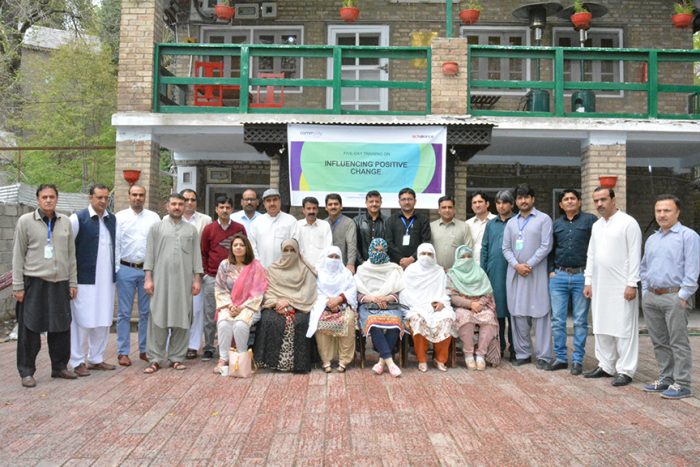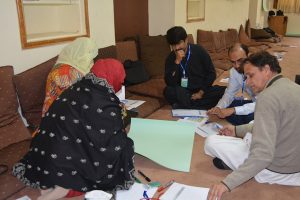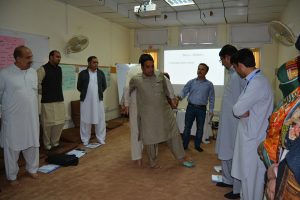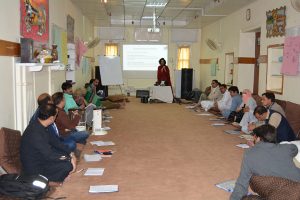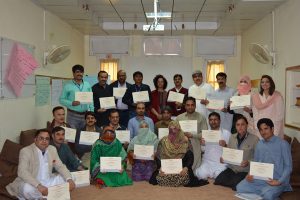The power to influence for positive change – Refining influencing and communication skills of national social workers
In Pakistan, national organizations are playing a vital role in pushing for social development agendas by actively complementing the work of the government, media and other stakeholders towards achieving the ultimate goal of creating a progressive society. To do this and to effectively contribute to the country’s social and economic progress, it is necessary for civil society organizations (CSOs) to be equipped with the required knowledge and strong influencing skills.
As a key activity of Community World Service Asia’s Capacity Enhancement Project, a training on “Influencing for positive change” for local and national level organizations was organized to strengthen the skills and technical ability of CSO staff to implement advocacy and awareness raising projects and engage communities in the process more effectively.
The training was a five-day course and took place in Murree with a daily attendance of twenty-four participants representing five different national non-profit organizations.
Aftab Ahmed Awan, is a humanitarian professional with more than 15 years’ of experience in strategic direction, development and implementation of organizational policies and frameworks and resource mobilization, facilitated the sessions. Natasha Sajjad, Policy Advocacy & Influencing Specialist, co-facilitated along with Aftab.
Along the five-day course, participants learnt to differentiate between influencing and networking and were introduced to new and most effective tools and approaches applied to tasks and activities linked to influence.
To enhance participants’ knowledge on developing a strategic approach towards policy engagement and its communication, participants were engaged in designing real campaigns for social change through policy reforms. Through this exercise, they practically learnt new skills and approaches applied to “influencing” for successful campaigns.
Some of the participating organizations wanted to develop new skills to effectively implement their projects that involved activities that required influencing policymakers and overcome challenges of communication and monitoring campaigns through this training. Most of these participants were well satisfied with what they learnt as the trainer shared different tactics to utilize and overcome challenges faced during campaigns. Action plans for future campaigns were developed by participants and were to be further refined with their teams in their respective offices. As a follow up of the training, participants were offered technical support post-training to ensure finalization of action plans.
Participants’ Voices:
Ali Anwar, Program Officer MEAL, LASOONA
“Having the experience of a number of trainings, this training came out to be different and significant in terms of content, methodology and management. The topics were linked to our work and provided a good experience. The training was quite interactive and allowed an open platform for transparent learning from all participants’ experiences.”
Ishrat, Team Leader, Peace & Development organization
“Working directly with community becomes challenging at times. This training provided technical solutions to overcome the challenges and influence the people through effective campaigns. It provided in-depth knowledge on different aspects such as design, power analysis of stakeholders, setting goals and objectives, developing key messages and choosing the right medium for communication. The participatory approach adopted in the workshop allowed equal engagement of participants.”
Hassan Jamil, Monitoring Officer, The Punjab Educational Endowment Fund (PEEF)
“Attending the workshop was a very interesting experience. I had a mixed opinion of the development sector, prior to this workshop. This workshop developed an optimistic view of humanitarian work and refined my knowledge for bringing a positive change in the society we live in. The interaction with experienced humanitarian professionals helps me build a clear understanding of running successful campaigns and influencing people to work for the progress of underprivileged societies.”





